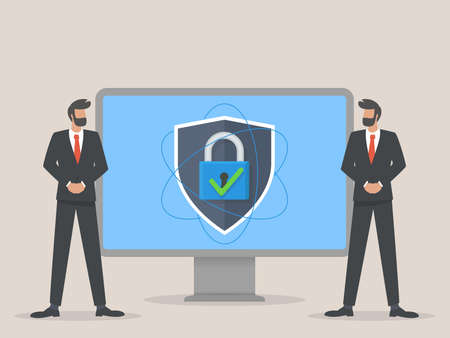Understanding the Importance of Cybersecurity for UK SMEs
For small and medium-sized enterprises (SMEs) across the UK, cybersecurity is no longer a distant concern reserved for large corporations. According to the UK government’s 2023 Cyber Security Breaches Survey, 32% of businesses identified at least one cyberattack in the past year, with SMEs often being targeted due to perceived vulnerabilities. High-profile incidents, such as ransomware attacks on local councils and data breaches affecting regional retailers, demonstrate that even modestly sized firms can face significant financial and reputational damage. The average cost of a single cyber breach for UK SMEs now stands at over £4,200—a figure that can threaten cash flow stability or even business continuity. With digital transactions and remote work becoming standard, building a robust cybersecurity culture among your staff isn’t just a technical necessity; it’s a critical component of your organisation’s financial resilience and ongoing success in the competitive British marketplace.
Recognising Common Cyber Threats Facing UK Businesses
For UK SMEs, understanding the cyber threats most likely to impact your business is a critical step towards building a robust cybersecurity culture. Cybercriminals are increasingly targeting small and medium-sized enterprises, exploiting both technical vulnerabilities and human error. The table below outlines the most prevalent cyber risks currently facing UK businesses:
| Threat Type | Description | Typical Impact on UK SMEs |
|---|---|---|
| Phishing | Fraudulent emails or messages designed to trick staff into revealing sensitive information or clicking malicious links. | Loss of credentials, unauthorised access to accounts, financial theft, reputational damage. |
| Ransomware | Malicious software that encrypts files or systems until a ransom is paid, often delivered via email or compromised websites. | Business disruption, data loss, significant financial cost, potential regulatory penalties. |
| Supply Chain Attacks | Attackers compromise a third-party supplier to gain access to your business systems or data. | Breach of sensitive information, operational downtime, loss of customer trust. |
| Business Email Compromise (BEC) | Sophisticated fraud where attackers impersonate senior staff or suppliers to trick employees into transferring funds. | Financial loss, trust erosion with partners and clients. |
Phishing remains the number one threat for UK SMEs because it directly targets your staff—your first line of defence. Ransomware attacks are particularly damaging due to their potential to halt operations and demand substantial payments in pounds sterling. Supply chain attacks have also risen sharply across the UK in recent years, as attackers exploit weaker security among suppliers to infiltrate better-protected organisations. By recognising these common threats and educating your team on how they operate, you lay the foundation for proactive cybersecurity management throughout your business.

3. Fostering Awareness and Accountability Within Your Team
Building a robust cybersecurity culture within your UK SME hinges on more than just technology—it requires a concerted effort to raise staff awareness and embed accountability into daily operations. Start by providing practical, scenario-based training sessions tailored to your sector. Use real-world examples relevant to British businesses, such as phishing scams masquerading as HMRC communications or fake supplier invoices, to drive home the risks. Encourage open discussion about cyber threats during regular team meetings, highlighting recent incidents in the UK and how they could have been prevented.
To instil individual responsibility, set clear expectations through role-specific cybersecurity guidelines. Make sure every employee understands their duties regarding password hygiene, device usage, and reporting suspicious activity. Implement simple, measurable policies—such as mandatory two-factor authentication and regular password updates—that make compliance straightforward for all staff members.
Accountability thrives when everyone feels empowered to act. Nominate cybersecurity champions across departments who can serve as go-to contacts for queries or concerns. Recognise positive behaviour publicly, whether that’s flagging a dodgy email or proactively updating software. By embedding cybersecurity into performance reviews and KPIs, you reinforce its importance alongside other business metrics.
Lastly, foster a culture of transparency around mistakes. If someone falls for a phishing attempt or clicks on a malicious link, treat it as a learning opportunity rather than grounds for reprimand. This open approach encourages prompt reporting and helps prevent small issues from becoming costly breaches—a vital mindset for any resource-conscious UK SME.
4. Practical Staff Training and Ongoing Education
Keeping your team up to speed with the latest cyber threats is not a one-off exercise—it’s an ongoing investment that UK SMEs must prioritise. Regular, relevant training is essential to foster a proactive cybersecurity culture. Here’s how you can approach this effectively:
Invest in UK-Focused Training Programmes
Choose training solutions tailored to the UK business landscape, such as those addressing GDPR, the National Cyber Security Centre (NCSC) guidelines, and common attack vectors like phishing and ransomware targeting British firms. Look for providers offering interactive modules and real-world scenarios faced by UK organisations.
Schedule Regular Refresher Sessions
Cultural change happens over time. Set up quarterly or biannual refresher courses to ensure that staff remember core principles and are aware of new risks. Incorporate short quizzes or simulated phishing campaigns to reinforce learning and identify areas needing extra attention.
Leverage Free and Paid Resources
| Resource | Type | Description |
|---|---|---|
| NCSC Cyber Aware | Free Online Guidance | Official advice from the UK government on protecting small businesses. |
| Cyber Essentials eLearning | Accredited Course | Helps staff understand requirements for the Cyber Essentials scheme. |
| Phishing Simulation Tools | Subscription Service | Tests employee responses to realistic email threats. |
Create Department-Specific Content
Tune training topics to different roles—finance teams need to spot invoice fraud, while customer service should handle data securely. This targeted approach increases engagement and relevance.
Track Participation and Improvement
Use simple spreadsheets or learning management systems (LMS) to monitor who has completed which trainings and assess progress over time. This ensures accountability and highlights return on investment for your cybersecurity initiatives.
5. Implementing Security Policies and Best Practices Tailored to UK SMEs
Establishing robust security policies is a cornerstone of building a cybersecurity culture among your staff, especially for UK SMEs facing unique regulatory and operational landscapes. Begin by drafting clear, actionable security policies that address everyday risks—such as password management, device usage, data access controls, and email protocols. These policies should not be overly complex; simplicity ensures that all team members can understand and follow them without confusion.
Aligning with UK Regulatory Requirements
It is essential to ensure your policies comply with key UK regulations such as the Data Protection Act 2018 and the General Data Protection Regulation (GDPR). This means specifying how personal data must be handled, stored, and disposed of. Outline procedures for reporting data breaches within the legally required 72-hour window, and assign responsibilities for compliance monitoring to specific roles within your business.
Actionable Procedures for Everyday Operations
To make policies practical, break them down into daily routines. For example, mandate two-factor authentication for email accounts and internal systems. Require regular updates and patching of software across all devices. Implement a clean desk policy to prevent sensitive information from being left unattended in the workplace.
Embedding Best Practices Into Company Culture
Integrate security awareness into onboarding and ongoing training programmes. Use real-world examples relevant to UK SMEs—such as phishing scams targeting British businesses—to reinforce learning points. Encourage staff to report suspicious activity without fear of reprisal, fostering a proactive attitude towards security incidents.
Regular Review and Adaptation
Cyber threats evolve rapidly, so review your security policies at least annually or after significant changes to business operations or regulations. Solicit feedback from employees to identify areas where policies may need clarification or adjustment. By keeping procedures relevant and responsive to both legal obligations and day-to-day realities, you ensure they remain effective and embraced by your team.
6. Encouraging a Proactive Reporting Culture
For UK SMEs, building a cybersecurity culture hinges on making it easy and safe for staff to report anything suspicious. Open lines of communication mean employees are more likely to flag potential threats early, whether that’s a strange email, an unfamiliar login alert, or an accidental data breach. By fostering this transparency, businesses can catch issues before they escalate into costly incidents.
Why Proactive Reporting Pays Off
Encouraging staff to report concerns without fear of blame leads to faster detection and resolution of problems. In the UK’s regulatory climate, where GDPR fines can be significant, early reporting can directly reduce financial losses by limiting the damage and helping you stay compliant. It also signals to clients and partners that your business takes data security seriously—a key trust factor when winning contracts.
How to Build Open Reporting Channels
- Make reporting simple: Use dedicated inboxes or instant messaging channels for staff to raise flags easily.
- Offer anonymity: Consider anonymous reporting for sensitive issues, reducing hesitation and encouraging honesty.
- Train regularly: Remind staff through regular briefings that no question is too small—better safe than sorry.
Responding Effectively to Incidents
If a team member reports something unusual, respond promptly and professionally. Acknowledge their effort, investigate thoroughly, and keep them updated. This approach not only resolves threats quickly but also reinforces the value of vigilance across your workforce. By embedding these habits into your company’s daily operations, you create a resilient culture where everyone plays a part in protecting your business from cyber risks.
7. Leveraging Local Support and Resources
UK SMEs do not have to tackle cybersecurity challenges alone. There is a robust network of local organisations, government-backed schemes, and community-driven initiatives designed specifically to support small and medium businesses in their digital security journey. Tapping into these resources not only provides practical advice but also ensures your approach aligns with the latest UK-specific regulations and threats.
Government Schemes for Cybersecurity
The UK Government offers several schemes tailored for SMEs. The Cyber Essentials certification is a prime example, helping you guard against the most common cyber threats and demonstrating your commitment to cybersecurity to clients and partners. Additionally, the National Cyber Security Centre (NCSC) provides free guidance, toolkits, and threat updates tailored to smaller businesses.
Industry Organisations and Local Partnerships
Engage with industry bodies like the Federation of Small Businesses (FSB), which offers members access to expert advice, policy templates, and even insurance options. Local Chambers of Commerce often host cybersecurity workshops or connect members with vetted service providers. Staying active in these networks keeps your team informed and plugged into the latest best practices.
Community Initiatives and Peer Learning
Don’t underestimate the power of local community initiatives. Regional cyber resilience centres across England, Scotland, Wales, and Northern Ireland offer affordable training and real-world simulations for staff. Many also host peer-to-peer forums where SME leaders can share experiences—valuable for learning from others’ missteps or innovations without the cost of trial-and-error.
Maximising Your Return on Cyber Investment
By leveraging these UK-specific resources, you enhance your cybersecurity culture while ensuring every pound spent delivers tangible value. Regularly review what’s available locally—new grants, pilot programmes, or networking events could provide a crucial edge. Embedding this proactive approach into your company DNA will strengthen your defences and demonstrate prudent cash management to stakeholders.

